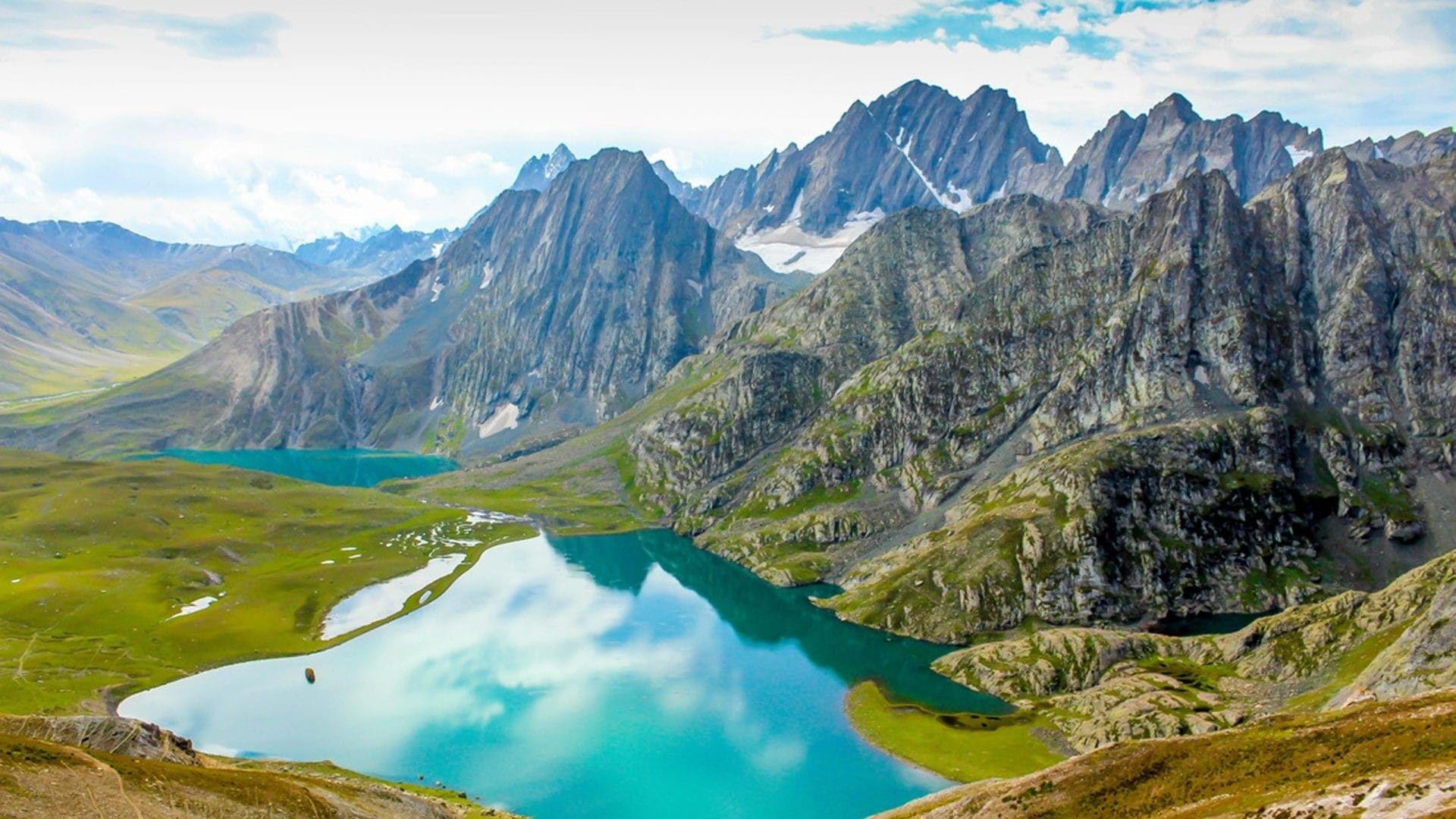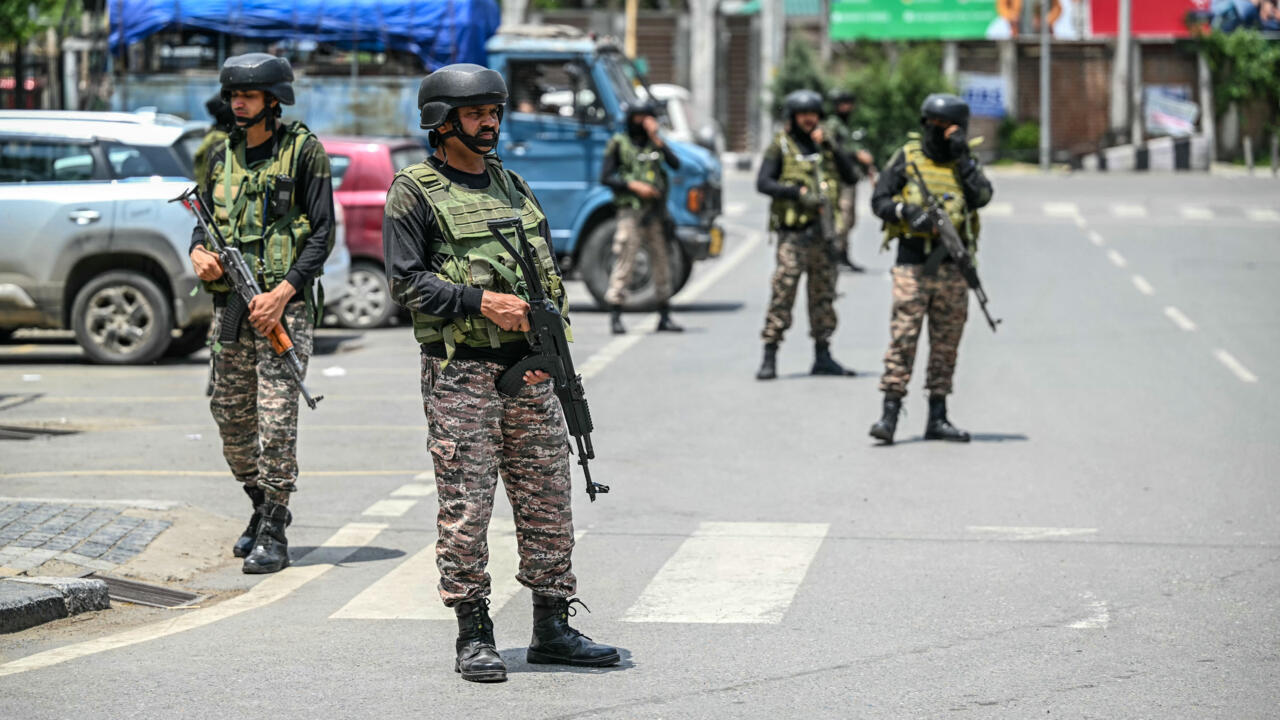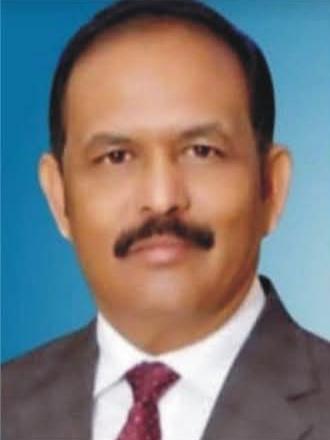The recent conviction of three prominent Kashmiri women leaders—Asiya Andrabi, Fahmeeda Sofi, and Nahida Nasreen—by a National Investig
22 October 1947: The Black Day in the History of Jammu and Kashmir. by Farooq Ganderbali

Introduction
The date 22 October 1947 will forever remain a Black Day in the history of Jammu and Kashmir. On this day, Pakistan, in a planned act of aggression, launched an invasion of the princely state through thousands of armed tribal raiders supported by the Pakistan Army. This brutal assault was not only an invasion of land but an attack on humanity itself — an attempt to destroy the soul, identity, and unity of Jammu and Kashmir.
The raiders came disguised as “liberators,” but what they brought was death, destruction, and terror. It was a dark and shameful episode that exposed Pakistan’s deceitful ambitions and its dangerous use of religion as a weapon of violence.
The Barbaric Invasion and Human Tragedy
During the tribal invasion of 22 October 1947, Pakistani soldiers and tribal militants carried out horrific crimes against innocent civilians. Entire villages were set ablaze, homes were looted, and thousands of men, women, and children were mercilessly killed. Hundreds of Kashmiri women were raped, abducted, and sold in markets across the border, while families were wiped out in cold blood.
This planned operation — code-named Operation Gulmarg — was orchestrated and directed by Pakistan’s military with the aim of forcibly annexing Jammu and Kashmir before the Maharaja could decide its future. The scale of the brutality was unimaginable. The peaceful land of Kashmir, known for its Sufi saints, spiritual harmony, and brotherhood, was drowned in blood by those claiming to fight a “holy war.”
The invasion of 1947 was the first face of Pakistan-sponsored terrorism — a campaign of terror masked under religion that continues to plague the region even today. It was an attempt to destroy Kashmir’s centuries-old composite culture, its unity, and its civilizational strength.
Pakistan’s Radical Designs and Global Deception
Since 1947, Pakistan has repeatedly used Islam and so-called Islamic propaganda to mislead innocent people and justify terrorism. It continues to run a global disinformation campaign on social media to radicalize youth, glorify terrorists, and defame India’s democratic progress in Jammu and Kashmir.
Pakistan has turned terrorism into state policy — sending terrorists, weapons, and narcotics across the border to destabilize the region. It is the duty of the United Nations and the international community to pressurize Pakistan to dismantle its terror infrastructure and stop exporting death and drugs to Kashmir.
The people of Jammu and Kashmir know the truth — Pakistan is not their well-wisher. It has only brought pain, propaganda, and poverty wherever its influence has reached. The world must recognize that peace in South Asia can never be achieved until Pakistan ends its policy of terrorism and religious extremism.
Accession Day – The Dawn of Freedom and Unity
The barbaric invasion forced Maharaja Hari Singh to seek India’s assistance to protect his people and territory. On 26 October 1947, the Maharaja signed the Instrument of Accession, legally and constitutionally making Jammu and Kashmir an inseparable part of the Union of India.
Every year, Accession Day is celebrated across Jammu and Kashmir as a symbol of pride, democracy, and unity. The people of the Union Territory proudly identify themselves as citizens of a democratic India — a land of Khwaja Gareeb Nawaz, of peace, spiritual wisdom, and inclusive values.
Unlike Pakistan, where everything is controlled by the Army and where there is no freedom of speech, media, politics, or education, the people of Jammu and Kashmir enjoy every moment of democracy. Around 70 to 80 percent of citizens participate in every election, freely choosing their representatives and shaping their destiny. This participation reflects the people’s faith in India’s Constitution and their rejection of Pakistan’s lies.
A New Era After the Abrogation of Article 370
The abrogation of Article 370 in August 2019 was a historic step that brought Jammu and Kashmir closer to the national mainstream. It ended decades of political exploitation and opened the doors to peace, development, and unity.
In the last few years, Jammu and Kashmir has witnessed world-class infrastructure development — new highways, tunnels, universities, AIIMS, and educational institutions have transformed the region’s landscape. Tourism has flourished, with record numbers of domestic and international visitors, proving that the valley’s true potential lies in peace, not propaganda.
The youth of Jammu and Kashmir now look to the future with hope — aspiring for education, entrepreneurship, and progress under the secure umbrella of the Indian nation.
Pakistan-Occupied Kashmir (PoK) – The Unfinished Chapter
While Jammu and Kashmir prospers as a proud part of India, the people of Pakistan-occupied Kashmir (PoK) continue to live under military oppression, censorship, and poverty. There is no democracy, no development, and no freedom in PoK — only exploitation by Pakistan’s military and political elite.
The people of Jammu and Kashmir demand that Pakistan-occupied Kashmir be returned to India, as it has always been and will forever remain a part of the original state of Jammu and Kashmir.
The People’s Will for Peace and Progress
Despite Pakistan’s repeated attempts to disrupt peace through terror attacks, including the recent killings of innocent tourists in Pahalgam and the targeted murders of Kashmiri Pandits, the people of Jammu and Kashmir have shown unmatched courage. They have stood firm against terrorism, radicalism, and separatism. The message from the people is loud and clear: we want peace, progress, and prosperity — not Pakistan’s bullets or lies.
Conclusion
The invasion of 22 October 1947 was the darkest day in the history of Jammu and Kashmir — a day that exposed Pakistan’s cruelty and betrayal. Yet, from that darkness emerged light. The people of Jammu and Kashmir, with their resilience, faith, and courage, chose India — the world’s largest democracy — as their nation, their home, and their identity.
Today, Jammu and Kashmir stands as a shining example of peace, unity, and development. The valley that once faced barbarism now blossoms with hope and democracy.
22 October 1947 will always be remembered as the Black Day — and 26 October as the Day of Light, Freedom, and Faith in India.
Jammu and Kashmir was, is, and will always remain an inseparable part of India.
Farooq Ganderbali, President Voice for Peace and Justice , working for Peace and ravival of culture and unity in J&K from last 23 years mail at .fganderbali@gmail.com twitter @farooqgbly
The date 22 October 1947 will forever remain a Black Day in the history of Jammu and Kashmir. On this day, Pakistan, in a planned act of aggression, launched an invasion of the princely state through thousands of armed tribal raiders supported by the Pakistan Army. This brutal assault was not only an invasion of land but an attack on humanity itself — an attempt to destroy the soul, identity, and unity of Jammu and Kashmir.
The raiders came disguised as “liberators,” but what they brought was death, destruction, and terror. It was a dark and shameful episode that exposed Pakistan’s deceitful ambitions and its dangerous use of religion as a weapon of violence.
The Barbaric Invasion and Human Tragedy
During the tribal invasion of 22 October 1947, Pakistani soldiers and tribal militants carried out horrific crimes against innocent civilians. Entire villages were set ablaze, homes were looted, and thousands of men, women, and children were mercilessly killed. Hundreds of Kashmiri women were raped, abducted, and sold in markets across the border, while families were wiped out in cold blood.
This planned operation — code-named Operation Gulmarg — was orchestrated and directed by Pakistan’s military with the aim of forcibly annexing Jammu and Kashmir before the Maharaja could decide its future. The scale of the brutality was unimaginable. The peaceful land of Kashmir, known for its Sufi saints, spiritual harmony, and brotherhood, was drowned in blood by those claiming to fight a “holy war.”
The invasion of 1947 was the first face of Pakistan-sponsored terrorism — a campaign of terror masked under religion that continues to plague the region even today. It was an attempt to destroy Kashmir’s centuries-old composite culture, its unity, and its civilizational strength.
Pakistan’s Radical Designs and Global Deception
Since 1947, Pakistan has repeatedly used Islam and so-called Islamic propaganda to mislead innocent people and justify terrorism. It continues to run a global disinformation campaign on social media to radicalize youth, glorify terrorists, and defame India’s democratic progress in Jammu and Kashmir.
Pakistan has turned terrorism into state policy — sending terrorists, weapons, and narcotics across the border to destabilize the region. It is the duty of the United Nations and the international community to pressurize Pakistan to dismantle its terror infrastructure and stop exporting death and drugs to Kashmir.
The people of Jammu and Kashmir know the truth — Pakistan is not their well-wisher. It has only brought pain, propaganda, and poverty wherever its influence has reached. The world must recognize that peace in South Asia can never be achieved until Pakistan ends its policy of terrorism and religious extremism.
Accession Day – The Dawn of Freedom and Unity
The barbaric invasion forced Maharaja Hari Singh to seek India’s assistance to protect his people and territory. On 26 October 1947, the Maharaja signed the Instrument of Accession, legally and constitutionally making Jammu and Kashmir an inseparable part of the Union of India.
Every year, Accession Day is celebrated across Jammu and Kashmir as a symbol of pride, democracy, and unity. The people of the Union Territory proudly identify themselves as citizens of a democratic India — a land of Khwaja Gareeb Nawaz, of peace, spiritual wisdom, and inclusive values.
Unlike Pakistan, where everything is controlled by the Army and where there is no freedom of speech, media, politics, or education, the people of Jammu and Kashmir enjoy every moment of democracy. Around 70 to 80 percent of citizens participate in every election, freely choosing their representatives and shaping their destiny. This participation reflects the people’s faith in India’s Constitution and their rejection of Pakistan’s lies.
A New Era After the Abrogation of Article 370
The abrogation of Article 370 in August 2019 was a historic step that brought Jammu and Kashmir closer to the national mainstream. It ended decades of political exploitation and opened the doors to peace, development, and unity.
In the last few years, Jammu and Kashmir has witnessed world-class infrastructure development — new highways, tunnels, universities, AIIMS, and educational institutions have transformed the region’s landscape. Tourism has flourished, with record numbers of domestic and international visitors, proving that the valley’s true potential lies in peace, not propaganda.
The youth of Jammu and Kashmir now look to the future with hope — aspiring for education, entrepreneurship, and progress under the secure umbrella of the Indian nation.
Pakistan-Occupied Kashmir (PoK) – The Unfinished Chapter
While Jammu and Kashmir prospers as a proud part of India, the people of Pakistan-occupied Kashmir (PoK) continue to live under military oppression, censorship, and poverty. There is no democracy, no development, and no freedom in PoK — only exploitation by Pakistan’s military and political elite.
The people of Jammu and Kashmir demand that Pakistan-occupied Kashmir be returned to India, as it has always been and will forever remain a part of the original state of Jammu and Kashmir.
The People’s Will for Peace and Progress
Despite Pakistan’s repeated attempts to disrupt peace through terror attacks, including the recent killings of innocent tourists in Pahalgam and the targeted murders of Kashmiri Pandits, the people of Jammu and Kashmir have shown unmatched courage. They have stood firm against terrorism, radicalism, and separatism. The message from the people is loud and clear: we want peace, progress, and prosperity — not Pakistan’s bullets or lies.
Conclusion
The invasion of 22 October 1947 was the darkest day in the history of Jammu and Kashmir — a day that exposed Pakistan’s cruelty and betrayal. Yet, from that darkness emerged light. The people of Jammu and Kashmir, with their resilience, faith, and courage, chose India — the world’s largest democracy — as their nation, their home, and their identity.
Today, Jammu and Kashmir stands as a shining example of peace, unity, and development. The valley that once faced barbarism now blossoms with hope and democracy.
22 October 1947 will always be remembered as the Black Day — and 26 October as the Day of Light, Freedom, and Faith in India.
Jammu and Kashmir was, is, and will always remain an inseparable part of India.
Farooq Ganderbali, President Voice for Peace and Justice , working for Peace and ravival of culture and unity in J&K from last 23 years mail at .fganderbali@gmail.com twitter @farooqgbly
You May Also Like
Open Doors, an international organization that provides protection to vulnerable Christians around the world, released a World Watch List in 2025,
Accepting the Lord Jesus Christ and following His commandments is a difficult and arduous path. Every step of the way is fraught with suffering, pe

"Trial of Pakistani Christian Nation" By Nazir S Bhatti
On demand of our readers, I have decided to release E-Book version of "Trial of Pakistani Christian Nation" on website of PCP which can also be viewed on website of Pakistan Christian Congress www.pakistanchristiancongress.org . You can read chapter wise by clicking tab on left handside of PDF format of E-Book.








